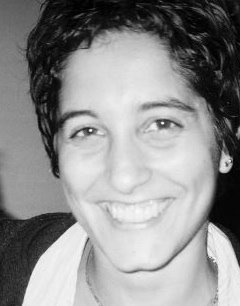Show us your model
Last night, we watched attentively as some of Africa's most famous football (soccer) legends picked numbers and names out of a glass bowl and, with a transparency we all wish upon the next Nigerian elections, determined the four different groups for the 2008 Cup of African Nations. Niger didn't qualify, yet all of Niamey dragged TV sets out of shacks and into streets and dirt roads to watch the event communally. Starting next January, 16 African teams will come together and battle it out in Ghana's stadiums for one of the most important and reputable titles in the region. Some are obvious favorites: Ghana, Nigeria, Cote d'Ivoire, Senegal... Others inspire more giggles than awe: Sudan (how did they get it together to even have a team?), Namibia (where is this place again?), Benin (we're protective of them, but you have to admit nobody really knows how they made it this far...)
It's going to be an exciting tournament. And we're here to give you a reason to care.
We all know that soccer is more than just soccer. We've blogged about this but smarter people have already written serious books about it before us. Soccer matches and soccer tournaments have triggered wars and taken down military regimes. And more than any other sport - or diplomatic effort for that matter - soccer can bring together Israelis and Iranians, Ghanaians and Nigerians, French and Germans, and Salvadoreans and Hondurans in one same, enclosed space, for 90 minutes... where the only shots fired are soccer balls aimed at soccer nets.
Clearly, what happens on that field and the scores that ensue must have something to do with more than just the individual performance of each player. It's also about the quality of the teams. And that, my friends, can be endogenous (I couldn't help myself) to any number of things...
With this in mind, we present to you the 2008 African Cup of Nations It's-More-Than-Just-Soccer Pool. To participate, simply email us the following information:
1) A written $5 pledge (it ain't fun if there are no stakes);
2) Your prediction rule: this is the rule you will have to commit to for all predictions throughout the tournament. You can choose any factor you believe best predicts victory. This can range from strictly athletic factors (the team with the most players in the Premier League will win) to strictly political factors (the team from the most democratic country will win). Identify your rule and explain it (note: number of languages and female literacy are already taken by yours truly);
3) Make available any external data needed to verify your predictions;
4) Pretend like this is a really cool and witty idea;
5) Do this by December 31st, 2007.
Qualifying teams are Ghana, Guinea, Namibia, Morocco (Group A); Nigeria, Mali, Cote d'Ivoire, Benin (Group B); Egypt, Sudan, Zambia, Cameroon (Group C); Tunisia, Senegal, South Africa, Angola (Group D). Games start January 20, 2008.
Good luck - and may the best empirical model win.
It's going to be an exciting tournament. And we're here to give you a reason to care.
We all know that soccer is more than just soccer. We've blogged about this but smarter people have already written serious books about it before us. Soccer matches and soccer tournaments have triggered wars and taken down military regimes. And more than any other sport - or diplomatic effort for that matter - soccer can bring together Israelis and Iranians, Ghanaians and Nigerians, French and Germans, and Salvadoreans and Hondurans in one same, enclosed space, for 90 minutes... where the only shots fired are soccer balls aimed at soccer nets.
Clearly, what happens on that field and the scores that ensue must have something to do with more than just the individual performance of each player. It's also about the quality of the teams. And that, my friends, can be endogenous (I couldn't help myself) to any number of things...
With this in mind, we present to you the 2008 African Cup of Nations It's-More-Than-Just-Soccer Pool. To participate, simply email us the following information:
1) A written $5 pledge (it ain't fun if there are no stakes);
2) Your prediction rule: this is the rule you will have to commit to for all predictions throughout the tournament. You can choose any factor you believe best predicts victory. This can range from strictly athletic factors (the team with the most players in the Premier League will win) to strictly political factors (the team from the most democratic country will win). Identify your rule and explain it (note: number of languages and female literacy are already taken by yours truly);
3) Make available any external data needed to verify your predictions;
4) Pretend like this is a really cool and witty idea;
5) Do this by December 31st, 2007.
Qualifying teams are Ghana, Guinea, Namibia, Morocco (Group A); Nigeria, Mali, Cote d'Ivoire, Benin (Group B); Egypt, Sudan, Zambia, Cameroon (Group C); Tunisia, Senegal, South Africa, Angola (Group D). Games start January 20, 2008.
Good luck - and may the best empirical model win.



3 Comments:
How can we trust your contests when we still haven't gotten out our NYE 2006 blind taste test results?
Signed,
The Thorn in Your Side
Dear The Thorn in Our Side:
We apologize for the delay regarding the blind taste test results. It seems a dissertation defense and a fieldwork trip to Africa momentarily got in the way. However, we want to assure you that the data are now entered and under analysis... and that while you were one of our top participants with 21 valid blind tastes (topped only by your significant other), you appear to have poor brand-guessing ability and a well-honed taste for trader joe's products... more soon!
The Analysts at Omowe
That's the best thing I've heard all week!
Post a Comment
<< Home